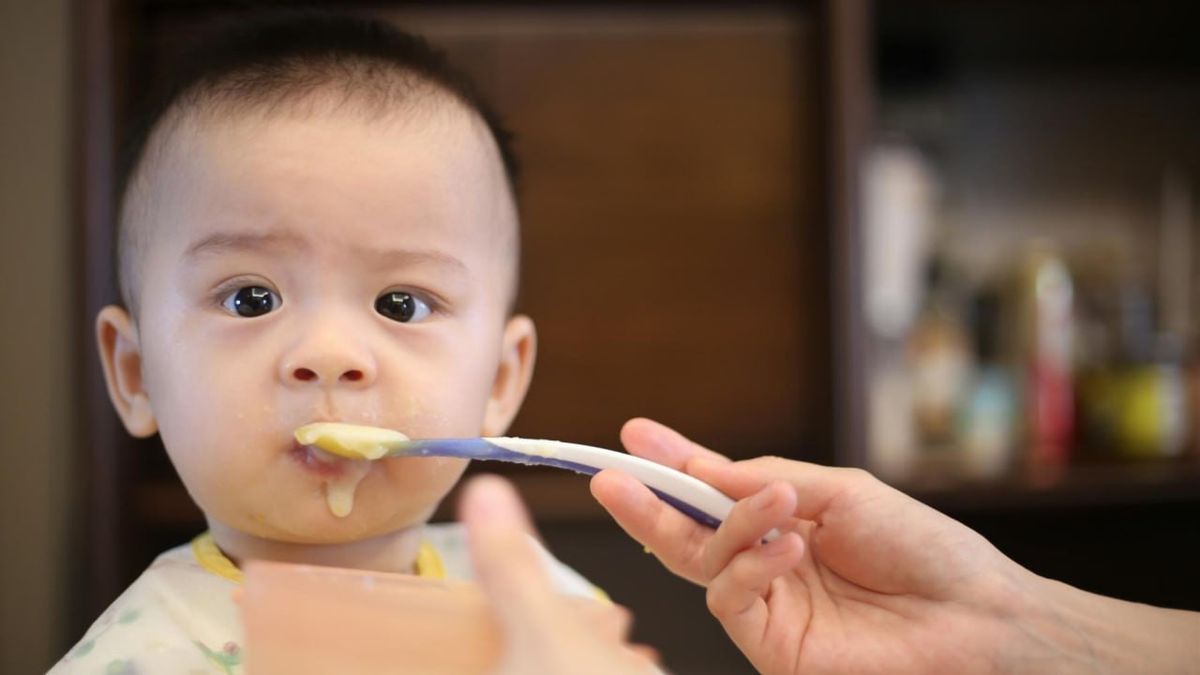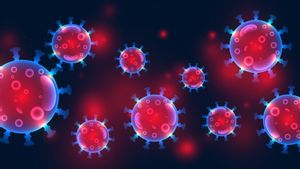YOGYAKARTA - Washing baby food and drinking utensils is certainly not enough. After washing, it is better if the equipment is sterilized using a special sterilizer. Because its hygienicity is not necessarily guaranteed when it only washes baby eating and drinking utensils. So do you need to be sterile baby eating utensils?
Sterilizing baby eating and drinking utensils is very important. In addition to guaranteed cleanliness, sterilizing baby equipment and drinking can prevent children from getting health problems, especially their mouth and digestive health.
Pediatrician from Brawijaya Hospital, Dr. Diana Chandra, Sp.A, at the Friends of Smart Mothers 1st Anniversary at Lippo Mall Kemang explained, "Sterile is important, especially for various children's eating utensils. This is the goal to avoid diarrhea, problems with pup and various health problems related to children's digestive tracts".
Babies are more susceptible to exposure to various diseases because their immune system does not work optimally when compared to adults. If a baby is often infected, it can boost its growth and development. This is why the hygiene of the body and baby's equipment, including its eating utensils, must always be well maintained for cleanliness and hygiene.
Contamination of viral or bacterial bacteria in food can cause various diseases in babies, ranging from sariawan, vomiting, to diarrhea. To prevent your little one from experiencing this condition, let's apply the following ways to clean up eating and drinking utensils:
Make sure Mother's hands are clean and sterile before touching and cleaning up eating and drinking utensils. This method is very important to prevent the transfer of germs and bacteria from the mother's hands to the Little One's makaner. Wash your hands with running water and soap for approximately 20 seconds.
Avoid using dish washing soap made of harsh chemicals or containing bleach because it can make eating and drinking utensils peel off and break down.
The recommended soap is special washing soap which is formulated to clean a baby's diet. The content in this washing soap is softer than ordinary dish washing soap.
It is better for sponges or brushes to wash eating and drinking utensils separated from other equipment, Bun. This is so that bacteria from other eating utensils do not move to small ones' eating and drinking utensils. In addition, immediately wash the eating and drinking utensils after use and do not pile them up or soak with other dirty equipment, yes.
What needs to be remembered, there is no need to always stretch eating and drinking utensils every time you finish using them, because sterilization that is too frequent can actually damage the surface of eating and drinking utensils.
Sterilization is only needed if the eating and drinking device has just been purchased or used by another baby. However, sterilization can be done once a day if your little one is sick or has a weak immune system.
Sterilizing eating and drinking utensils can be done by soaking it in a hot water container that has been boiling. Do not mix water with any soap because it can erode the surface of the eating and drinking device.
Use filtered water and avoid using tap water because it is feared that it will contain mineral deposits that may damage eating and drinking utensils.
First of all, heat the water on the stove until it really boils. For tools made of plastic, glass, or metal, sterilize the boiling water with the fire turned off. If the fire is still on, it is feared that the utensils to eat and drink will touch the very hot pot floor, then damaged or melted.
The stainless steel utensils can be sterilized on boiling water with the fire still burning for 10 minutes. After that, close the container and leave the water cold.
If you want something more practical and guaranteed cleanliness, Bunda can use a sterilizer. In addition to eating and drinking utensils, this tool can also sterilize milk bottles or baby toys.
SEE ALSO:
After washing clean or sterilized, dry the utensils and drink using tissue or just leave it to dry itself. Avoid using the plate lap or towel used repeatedly because it can cause bacterial and viral contamination.
Save food and drink utensils in a closed container and separate from other eating utensils. This is very important to do so that eating and drinking utensils are always clean and not contaminated with dust or dirt that can stick from the surrounding air.
When washing eating and drinking utensils, stroke the entire surface and make sure nothing breaks or breaks. In addition to being able to injure your little one, damaged eating and drinking utensils are more ideal places for breeding bacteria. So, if there are damaged eating and drinking utensils, you should replace them with a new one.
Maintaining the cleanliness of eating and drinking utensils can be one way to prevent children from getting sick. Therefore, apply the tips above so that the cleanliness of your little one's eating and drinking utensils is always maintained.
That's a review of sterile baby utensils. Visit VOI.id to get other interesting information.
The English, Chinese, Japanese, Arabic, and French versions are automatically generated by the AI. So there may still be inaccuracies in translating, please always see Indonesian as our main language. (system supported by DigitalSiber.id)


















